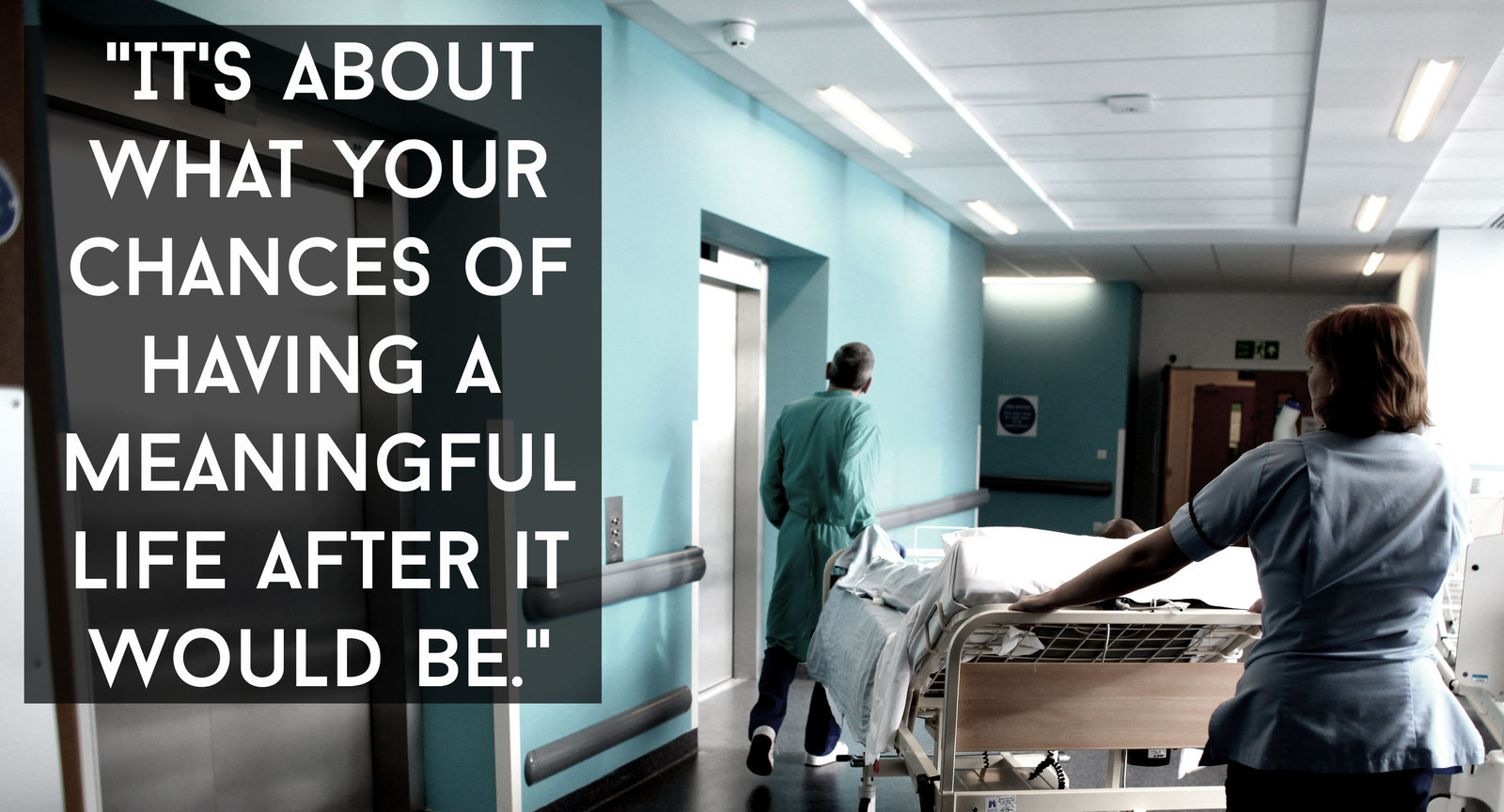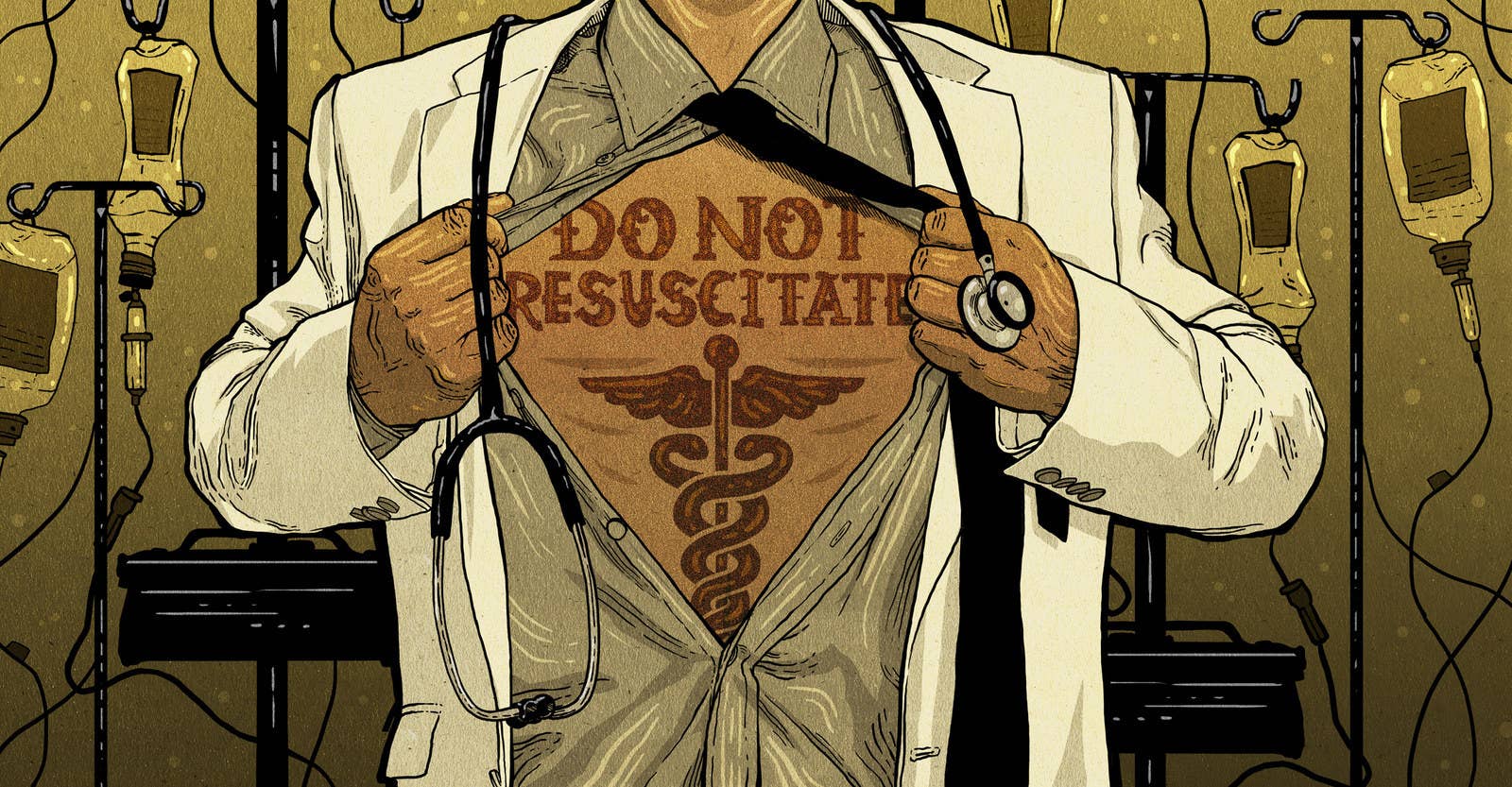
Isobel El-Shanawany, GP
“The hospital is my safe place. When I had my baby, I wanted the labour ward. I wanted to hear the beeps, people rushing around, that makes me feel secure. But I know full well that hospital is not a nice place when you’re 80 years old and dying.
“I’m 36. It’s so difficult to think of yourself as an 80-year-old frail person. Knowing what I know, I think I’d want less intervention than most patients seem to want. Patients have watched ridiculous programmes on telly, and think that CPR does work, and that they can be brought back from the dead and have a lovely happy life. In reality, it doesn’t happen.
“I wouldn’t want to go to intensive care unless they knew that I had a reversible cause and the outlook was good. I certainly wouldn’t want artificial feeding. It’s hard to look ahead. Now, as the mother of a 3-year-old who needs me, I’d probably say I want everything possible done just in case the outlook could be good and I could be there for him, but trying to picture myself as an 80-year-old is quite different. I think if you were to ask most doctors where they would want to die, they’d say at home, with the people who love them.
“On my first job, I just didn’t understand why with one patient we weren’t doing everything we could be doing, and my consultant said, ‘You have to learn when you’re prolonging life and when you’re prolonging death.' It sounds cheesy, but it’s true, and it’s a fine line. So much of what we can do does prolong death, and prolongs pain.”

Kate Stein, child and adolescent psychiatrist
“What would I want? It depends. If I was a little old lady, and I was really fragile and I’d had a good innings, I think I wouldn’t particularly want the resus, the whole caboodle, because you crack people’s ribs and it’s really quite undignified and you very rarely get them back. But of course I’d want people to try their absolute hardest if I had some weird cardiac problem and I suddenly collapsed next week. I’d really want people to work hard on me in that case.
“For all the cardiac arrests that I saw in A&E, I never saw anyone come back, and it was always people who’d been dead for quite a long time. There was one girl who was young, my age; she was epileptic and had had a seizure in the bath. It was awful. I think we tried to resuscitate her for literally an hour, but it was obvious that she was dead on arrival.
“I’ve cracked ribs before, and it’s not nice. The sound of a cracking rib is haunting, and it happens, especially with the big guys who do CPR in A&E. It doesn’t happen every time, but it often does, and it’s not very nice.
“As doctors you see the practicalities of these interventions, of tube feeding and ventilation and so on. You’re not shielded from that stuff. I’ve always said that if I were to develop some chronic thing, god forbid, like motor neurone or something, I’d definitely want to have the option of going to Dignitas and being able to control it in my own way. I’m sure that’s been guided by my experience as a doctor. Personally, I’d rather have that option, so my last moments can be with my loved ones, drinking my favourite wine, listening to my favourite music, rather than in a grotty hospital somewhere.”
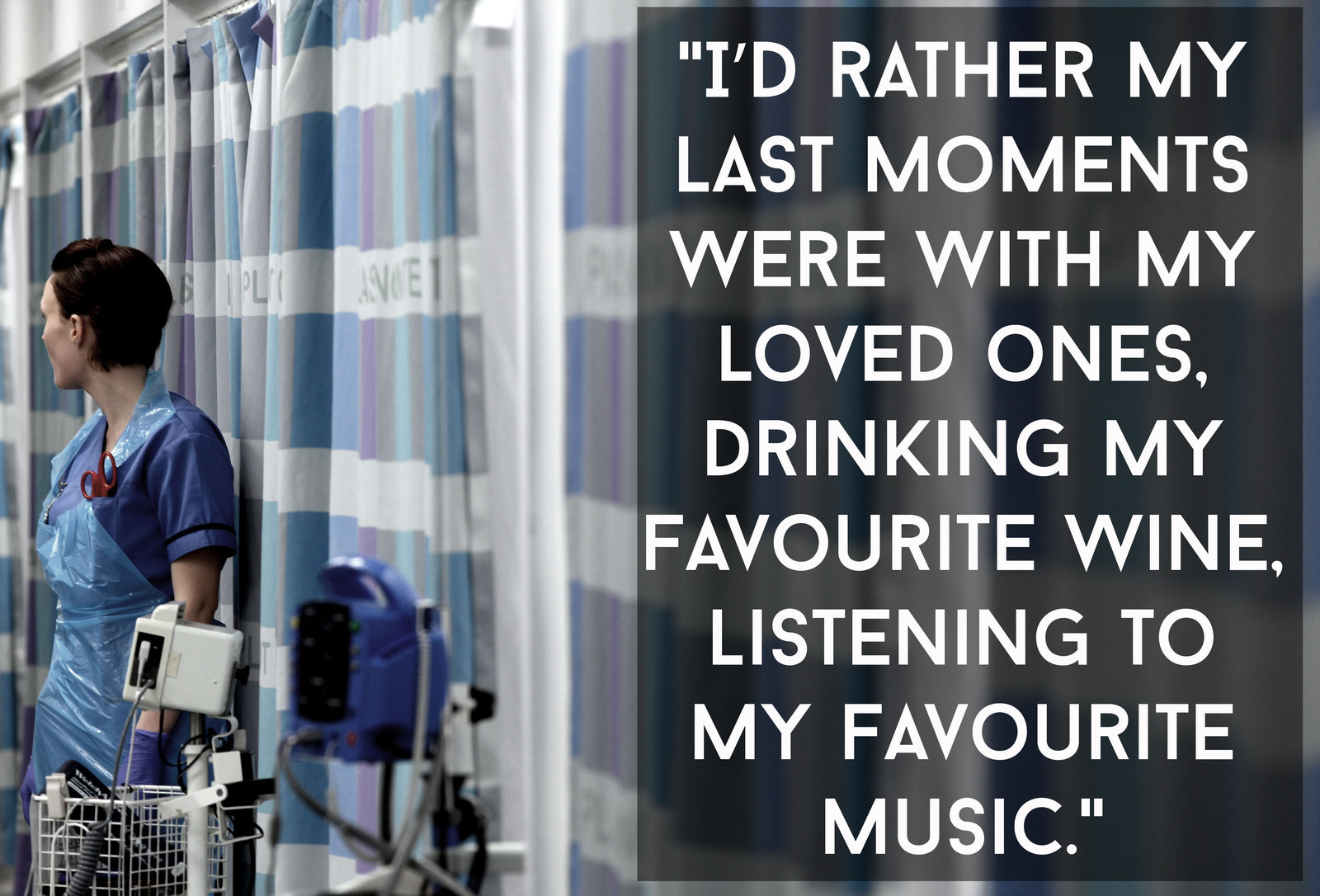
Anonymous, GP
“I’ve been involved in countless attempts to resuscitate patients, with varying degrees of success. I have also had to care for people kept alive solely with feeding tubes, living in nursing homes, rarely visited by family.
“I wouldn’t want CPR unless I have the good fortune to keel over in a district general hospital or outside an ambulance station. I have seen too many partially successful resusses that have resulted in significant damage and next to no quality of life for the patients involved. Often the resus attempt is done for the benefit of the relatives in attendance. Resus on TV gives a skewed idea of success rates, unless they have the magic touch on Holby City. If I’m in a coma, I would prefer that, once all reversible causes have been eliminated, no artificial feeding be instituted and that I be allowed to drift away in a haze of opiates.
“I strongly believe that my job as a doctor is to attempt to cure illness, when possible, but [also] to recognise when the time has come to shift emphasis and then ensure that the life my patient has left is as symptom-free and pain-free as possible – following a full and frank discussion with the patient.
“My own father had the foresight to arrange a lasting power of attorney – six weeks before he died, spookily enough. As part of this process we discussed what his wishes were in the event of various scenarios. When his abdominal aortic aneurysm ruptured six weeks later I was able to inform the A&E staff of his wish NOT to be resuscitated and he was kept alive long enough for all his children to be in attendance to say their last goodbyes. I would strongly urge everyone to set this process in motion and have this conversation.”
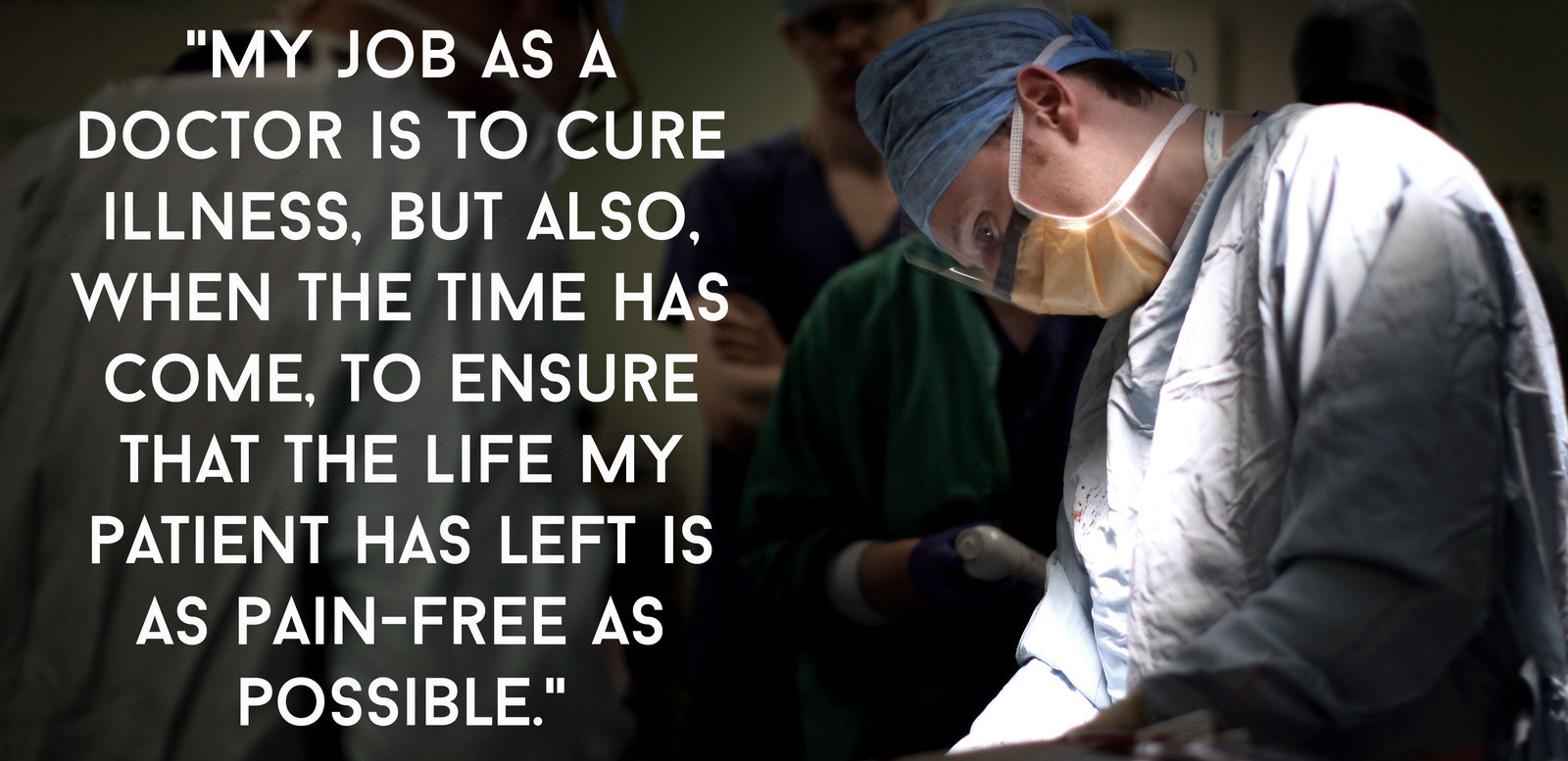
Pascale Lane, paediatric nephrologist
“I’m only 54 and I hope this doesn’t come up for some time! However, I certainly would not want a lot of the heroics that are offered in current intensive care.
“When I have what will likely be my terminal illness, I don’t want CPR or other measures. If I’m in a coma, I don’t want to be kept alive with feeding tubes or other artificial means. These treatments often prolong dying rather than adding any meaningful period of life.”
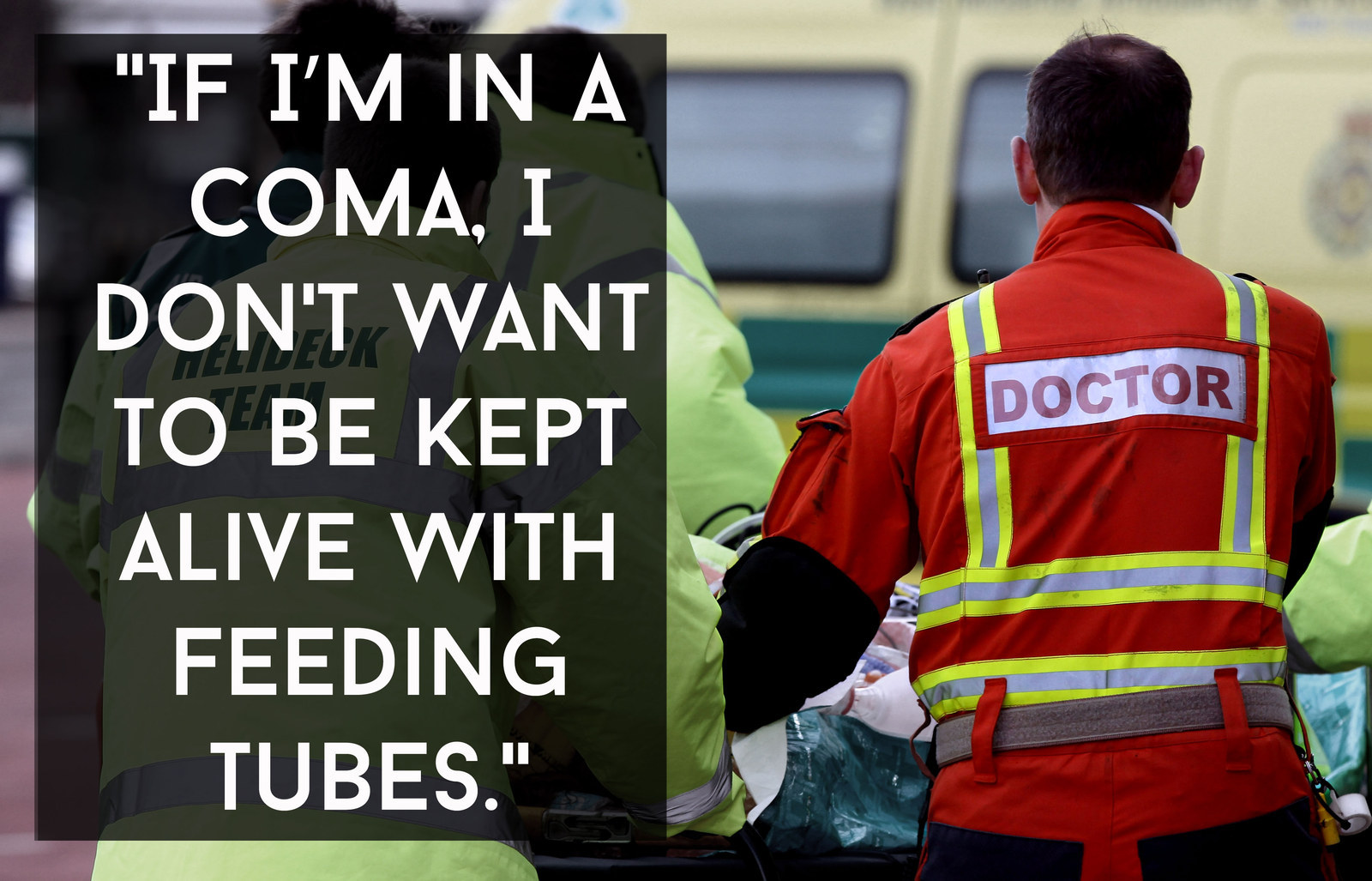
Rachel Boyce, GP
“I’m 38, I have a young family, and I’m in good health. If I had a severe and acute illness tomorrow, I’d hope someone would attempt to save me, because there’s a realistic chance of living a useful life. Fast-forward 40 years, it would be a different story. Because of what I’ve seen, I would not want to end up on intensive care unit in my seventies. I would be horrified to be put through what patients are put through. If someone has a massive heart attack on a hospital ward or at home, they are already dead. CPR can bring them back to life, but they don’t sit up and rub their chests saying ‘phew’. They will end up with a tube in their trachea, lines coming out of them. Many who do survive have brain damage. The media has a lot to answer for in terms of public perception of the success of CPR.
“Similarly, if I were diagnosed with cancer, I would think very carefully about whether to go through treatment. If I had something with a good cure rate, bring it on. But if I had, say, an oesophageal or pancreatic tumour, I would think hard before putting myself through any chemo or radiotherapy. These treatments are grim, might buy you a few months, but a lot of the time are futile. I am often staggered at what patients are put through in the hope of buying a few poor quality months of life.
“My grandfather had a massive stroke during heart surgery in his eighties and he ended up in a nursing home for two years, bed-bound, only eating puréed food. Was I glad he survived the operation? Not really. If he’d died from his stroke, we wouldn’t have had a chance to say goodbye, but dear god, he wouldn’t have suffered the way he did. I don’t actually have an advanced directive [aka living will] but I would definitely get one if I were diagnosed with MS or cancer or have a stroke. I would also seriously consider the Dignitas route, if euthanasia is not legalised in this country, but that’s another article…”
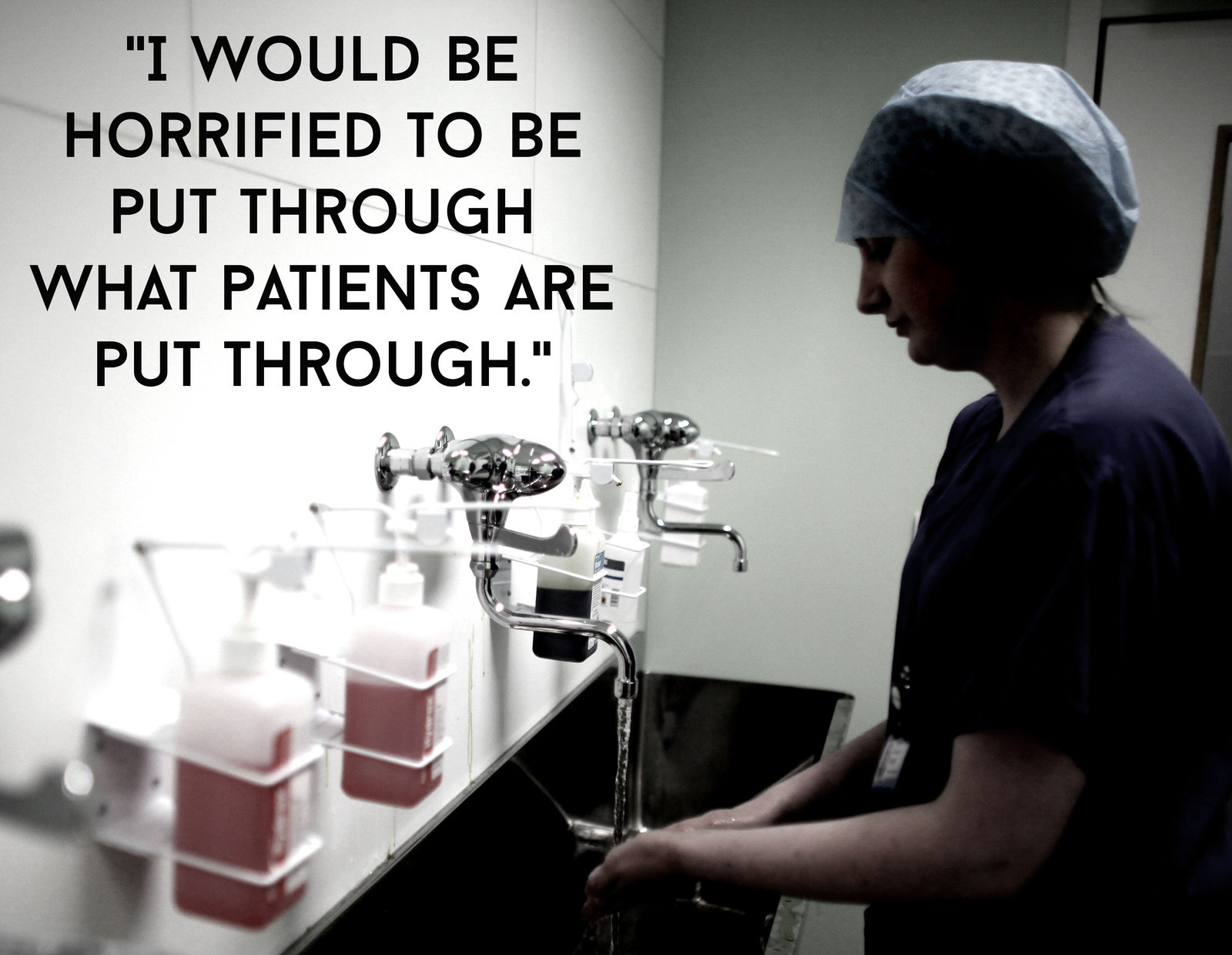
Anonymous, pharmaceutical physician
“Doctors have a jaded view of the various end-of-life interventions. This is mainly because we’ve seen how ineffective and brutal they often are. I think every medic will carry with them to the grave the sound/sensation of fracturing a bunch of ribs in an aged chest during a bout of (invariably unsuccessful) CPR. It’s profoundly unpleasant, believe me. CPR really only saves lives when young, healthy people who suffer cardiac arrest out of the blue. If someone is old and unwell then a good outcome is extremely unlikely. I think that’s why most medics I know would be “do not resuscitate” if they were in hospital as an elderly patient.
“It’s a more complex when it comes to interventions like antibiotics, IV fluids, or food. That’s all about quality of life. I generally think docs are a bit more aware that delaying the inevitable is not necessarily a good thing, if that involves prolonging suffering. However, I think people in general are a bit more educated about that too. I get the impression that relatives are a bit more proactive when it comes to discussing end of life plans nowadays. These 'end-of-life discussions’ are a very hot topic in medicine and a particularly tricky aspect of dealing with elderly or unwell patients.
“If I was fit and had a treatable illness, then they could do whatever they could. With a terminal illness and underlying poor health (e.g. if I’m very elderly) then I would not want any CPR, that’s for damn sure. I would want IV fluids, as dehydration is miserable, and I would like to make a decision about antibiotics on an infection-by-infection basis. I don’t think I would want nasogastric [tube up the nose] feeding, other than on an extremely temporary basis. A life where I can’t chew/savour food is probably not a life worth living.”
This doctor also sent a link to this research into how doctors’ experience affects their end-of-life decisions, and how often they end up doing things for patients which they wouldn’t want done themselves.
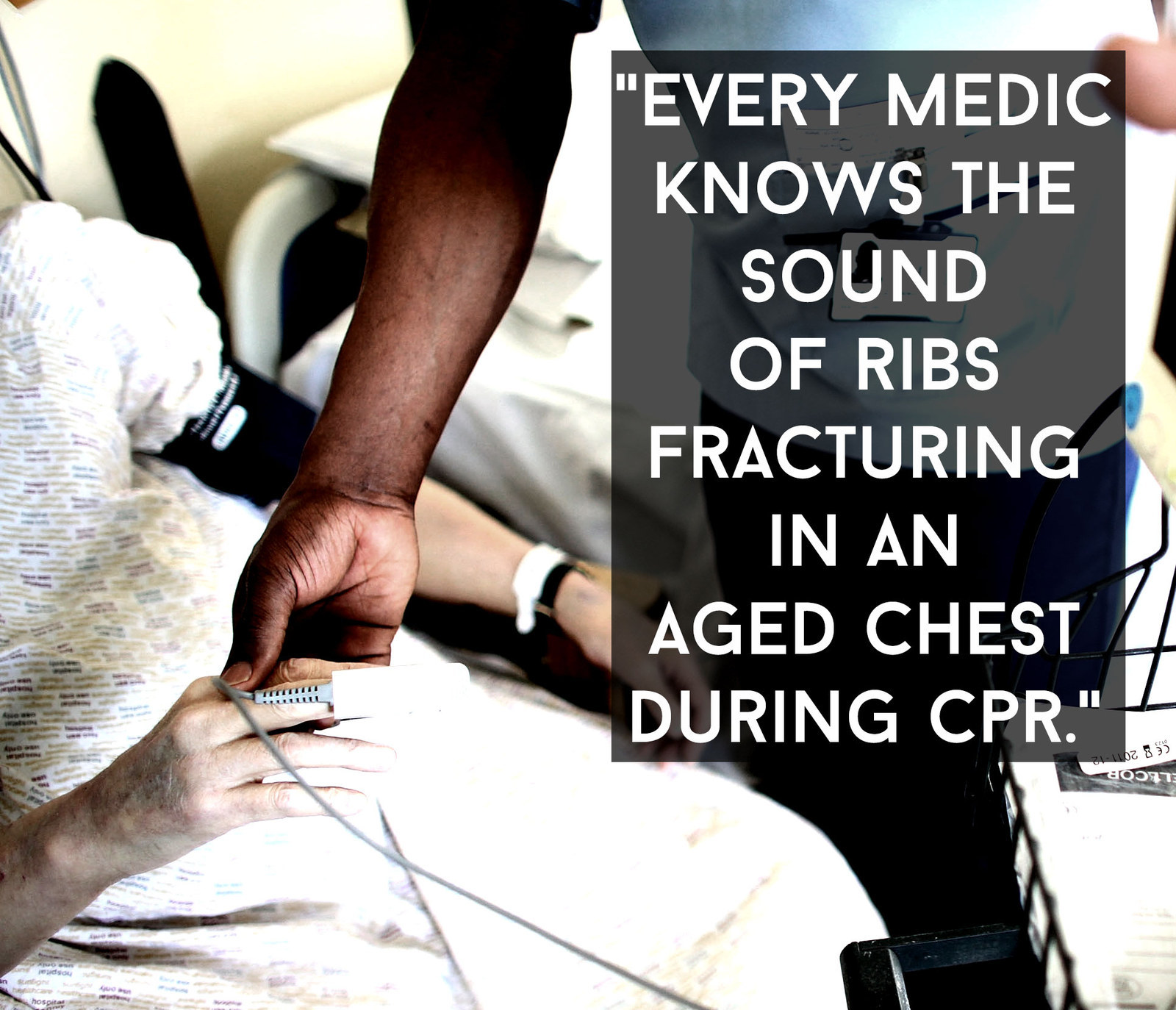
Natalie Silvey, trainee anaesthetist
“A commonly heard phrase when discussing what a patient would want when critically unwell is that they would ‘want everything done’. The longer I am a doctor, the more I worry about what that patient or their relatives think ‘everything’ is. I am becoming more and more clear about the things I wouldn’t want done if I should fall unwell suddenly. Which is why talking about death and end-of-life care is so important.
“If I had an acute medical condition that was reversible, then I would agree to most treatments. But I have been clear with my family that I wouldn’t want things like CPR, artificial feeding, or prolonged ventilation if I were to become unwell and if the doctors and others looking after me thought my chances were poor.
“CPR on TV drives me mad. It is completely unrealistic, and having been to many cardiac arrests now you see the reality, and I don’t think I would want that unless there was an easily reversible cause (which there very often isn’t). Of course, some people survive a cardiac arrest and go on to do very well. It isn’t an exact science, but I do know that I don’t want huge heroics unless there is a very good chance of survival. Perhaps it is because of seeing a lot of patients die in different ways and looking after them in a variety of settings; perhaps it is a fear of loss of control. But I do want to make an advance directive and I have spoken to my family about the type of things I would want. For example, I'm very clear that if there was any way I could donate my organs I would definitely want that.
“I just don’t want heroics. I want good pain relief and other symptom control, and not to be alone.”
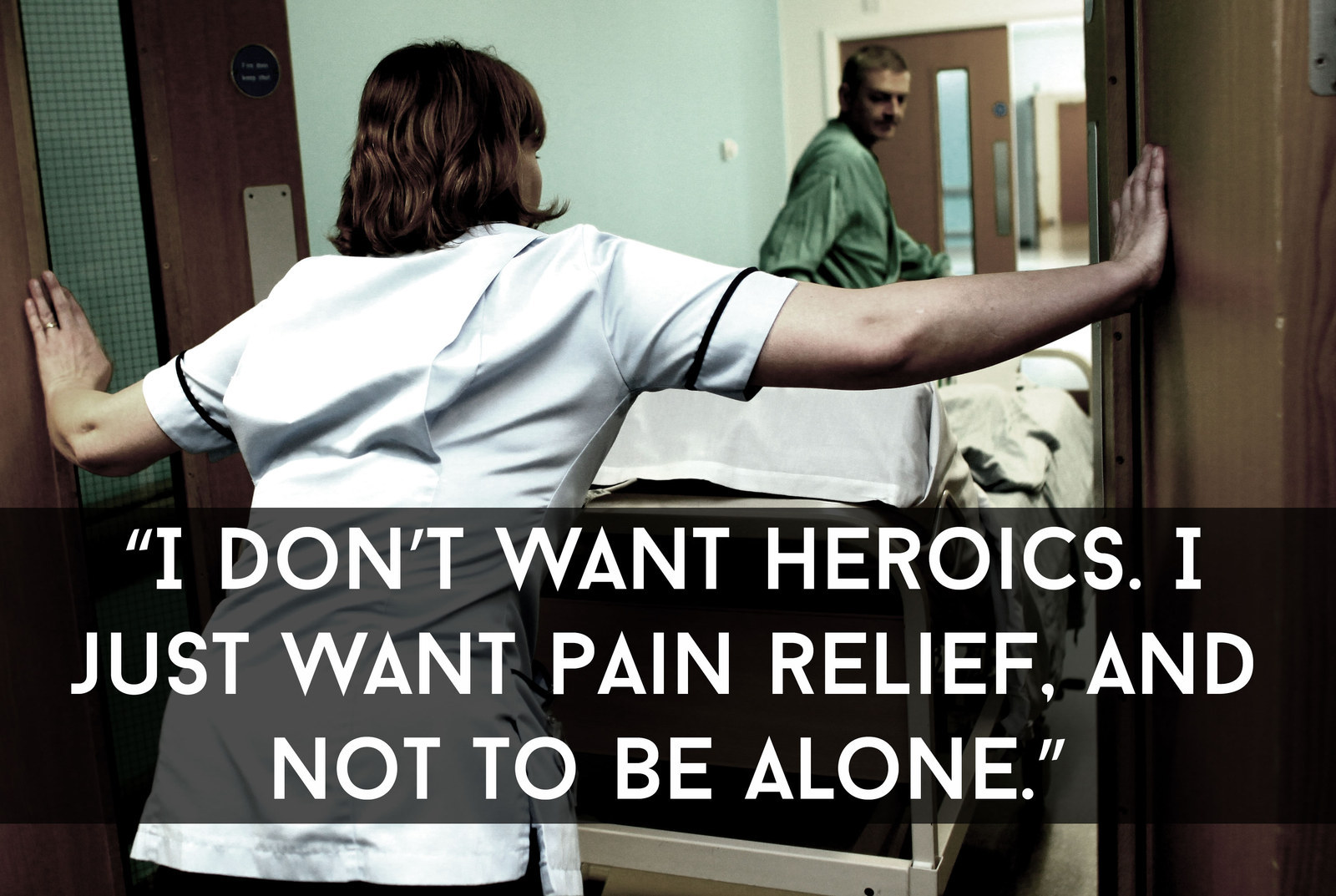
Anonymous, consultant in emergency medicine
"I would want CPR, with the caveat that it's a question of how futile it is. If I had a simple cardiac arrest, if my heart stopped but everything else was fine, then yes, I'd probably want it, because I'd have a pretty good predicted outcome. If, however, I'd been unwell for some time, and my kidneys had gone, and my lungs had gone, and because of that my heart stopped, then the chances of a meaningful recovery are much lower. Following a cardiac arrest you're likely to head to ITU [intensive therapy unit], you're likely to be there for some time, you're likely looking at muscle wastage, and possibly pneumonia from the ventilation system.
"It's about what your chances of having a meaningful life after it would be. It's not beyond anyone's understanding, but doctors have more experience of it. I will frequently be in a position of breaking bad news to somebody, or saying so-and-so's very ill, and you have a discussion: You tell them that if they get so sick that their heart stops, then we might not be able to get them back, or if we do then they'll be on an ITU for a long time, and they may not get better. When it's explained in those terms, people who 20 minutes earlier were saying that Granny wants to hang on to life might start saying that, well, if she can't tend her garden, maybe she wouldn't. It's a question of explaining the realities, explaining what it means to get so sick that your heart stops. If an intervention isn't going to return me to a quality of life which I'd wish for, then I think that's probably where the line is drawn.
"Regarding assisted suicide: I would feel very frustrated if I were in a position whereby I was incapacitated and didn't have the option to end my life. It's an option which everyone has while they're walking and talking and moving around, but once you're stuck in a chair, dependent on feeding tubes, that liberty is taken away from you. That's not to say that we should have free rein and everyone should be rushing off to Dignitas – it must be done with education and discussion and a sense of fairness – but I think those who say it shouldn't be an option are usually saying it in a position where you still have that option."
